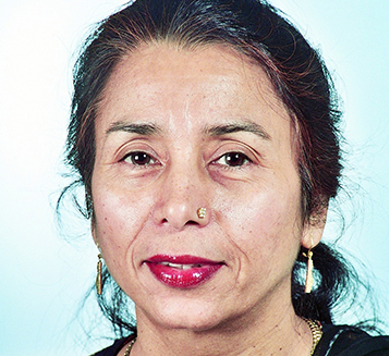Host countries in the Gulf and a majority of origin countries differ in their views and policies on migration, consistent with an apparently universal rule. While the former regard immigrants as a threat the latter view their emigrants as benefactors. At the sending end, there is the belief that emigrants will improve the lives of the families and communities left behind. At the receiving end, there is the fear that immigrants will bring to their hosts some of the problems that pushed them to move and may disrupt the traditional social order. Such fears are likely to have been exacerbated by the rising levels of unemployment among Gulf nationals, even though nationals and migrants do not compete for the same jobs. The objective of this workshop is to take stock of major policies of host as well as origin countries in order to arrive at a better understanding of the continuity and change in such policies and the factors motivating such changes. In the case of host countries, the workshop focuses especially on policies relating to efforts aimed at restricting future migration, reducing dependence on foreign workers, ensuring protection and decent work 2 for migrants, increasing women's participation in the workforce, curb irregular migration, enhance collaboration and cooperation with sending countries etc. In the case of origin countries, the workshop focuses especially on policies designed to enhance and maintain labor migration, regulate and oversee the work of intermediaries that facilitate migration, ensure protection and worker welfare in host countries, foster money transfers, curb irregular migration, and cooperation with host countries to attain orderly and legal migration. Monitoring systems to evaluate the success of various policies are often missing. Thus the workshop will attempt to assess the implementation and impact of migration-related policies of various countries
3 DAYS / 12 Workshops
MORE THAN 300 ACADEMIC PAPERS
In responding to the United Nations queries about their views and policies on
immigration, almost all Gulf countries regard the level to be too high and state that they
have policies to reduce it. In contrast, a majority of the countries from which migrants to
the Gulf originate state that they are either satisfied with the level of emigration from
their countries or regard it as too low and would like to raise it or at least maintain the
level (Table 1).
Source and host states in the region conform to an apparently universal rule, with the
former viewing their emigrants as benefactors and the latter regarding immigrants as a
threat. At the sending end, there is the belief that emigrants will improve the lives of the
families and communities left behind. While, at the receiving end, there is the fear that
immigrants will bring to their hosts some of the problems that pushed them to move, and
may disrupt the traditional social order. Such fears are likely to have been exacerbated by
the rising levels of unemployment among Gulf nationals, even though nationals and
migrants do not compete for the same jobs.
The respective contradictory goals have resulted in a multitude of rules, regulations, and
laws that have provided policy guidelines for managing migration from the origin to host
countries. Several of these policies go back to the advent of large scale labor migration to
the Gulf countries starting in 1970s and 1980s, as does the divergence of policies
between the host and origin countries. Many of the policies have become more refined
and specific over time. During the last two decades, some have been implemented more
vigorously than before. Moreover, while policies on immigration (regulating entry, stay,
work, rights, etc.) are as old as nations themselves, emigration and diaspora policies are
in most cases recent, a fact which makes migration a matter for international relations,
such as the Colombo and Abu Dhabi processes in Asia.
3
The objective of this workshop is to take stock of major policies of host as well as origin
countries in order to arrive at a better understanding of the continuity and change in such
policies and the factors motivating such changes. In the case of host countries, we will
focus especially on policies relating to efforts aimed at restricting future migration,
reducing dependence on foreign workers, ensuring protection and decent work for
migrants, increasing women's participation in the workforce, curbin irregular migration,
enhancing collaboration and cooperation with sending countries etc. In the case of origin
countries, we will focus on policies designed to enhance and maintain labor migration,
regulate and oversee the work of intermediaries that facilitate migration, ensure
protection and worker welfare in host countries, foster money transfers, curb irregular
migration, and cooperation with host countries to attain orderly and legal migration.
While it is important to document the continuity and change in major policies regulating
migration to Gulf countries, it is equally important to assess the degree to which such
policies achieve their intended goals. Though firm conclusions about the effectiveness of
different policies are difficult to make in the absence of well-designed monitoring
systems, an attempt will be made to assess the implementation and impact of source and
host states’ migration-related policies, to the extent possible.

